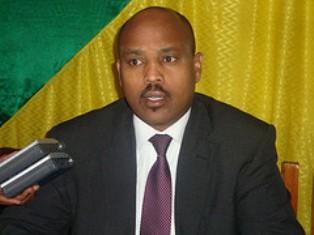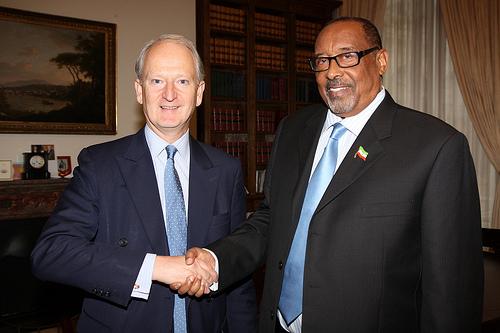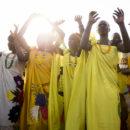Somaliland did not surrender sovereignty by attending the London Conference – By Mohamed A Omar, Foreign Minister, Somaliland

Somaliland is re-engaging with international diplomacy related to its neighbour, Somalia. Our country has received widespread praise for its contribution to the recent London Conference. This event represented an important milestone in Somaliland’s diplomacy. We participated in the conference as an equal, and we laid out our views about how Somaliland can help build peace and stability in Somalia. We are very grateful to the British Government for convening the conference and for inviting us.
It was the first time that Somaliland had ever taken part in an international conference dealing with the future of Somalia. Prior to the conference, some of our people had expressed reservations about Somaliland’s participation, because they were afraid that our Government’s presence in London could be misinterpreted by our international partners as endorsing an eventual return to unity with Somalia.
I believe that our government decisively addressed this issue in our statement to the conference, in which we underlined our view that our declaration of independence in 1991 is definitive. Had we not attended, we would have missed an opportunity to share this view with 55 delegations, represented at very high level.
Given these sensitivities, President Silanyo consulted widely with Somaliland’s political and civil society leaders before deciding to accept the invitation to the Conference. It was important that there be a strong mandate from Somaliland’s two legislative bodies, the Council of Elders and the House of Representatives. In fact, these two bodies had to change our law in order for President Silanyo to attend. This process illustrates Somaliland’s democratic credentials and our culture of consultation. The overwhelming backing for participation in the conference is a mark of our people’s political maturity.
The conference also provided us an opportunity to lay out our ideas about how to bring peace and stability to Somalia. We believe that attempts to find a solution to the problem of Somalia based on the de jure boundaries of the state risk undermining the very stability which the international community is seeking. Furthermore, focusing energy on the re-creation of a centralized state through a top-down approach ignores the realities on the ground, and the decentralized nature of Somali politics.
Somaliland offers a useful example in this regard, as several countries noted at the Conference. Somaliland built peace and democracy through an indigenous bottom-up approach, drawing on traditional conflict resolution methods. We believe that a similar approach is needed in Somalia, and we have offered to share our experience with our brothers and sisters in that country. We would of course be in an even stronger position to contribute to a stable and peaceful Somalia if we were recognised internationally.
The Final Communiqué issued from the Conference also recognised the need for the international community “to support any dialogue that Somaliland and the TFG or its replacement may agree to establish in order to clarify their future relations.” We believe that this clearly supports our vision of a dialogue between two separate entities, which treat each other as equals. It will, I hope, mark a starting point for constructive discussions about our relationship with Somalia, including an acceptance by the authorities in Mogadishu that our voluntary union failed long ago, and that the future stability of the region is best served by accepting Somaliland’s independence.
A number of bilateral meetings between President Silanyo and Ministers from other countries took place in the margins of the conference, all of which were conducted in a spirit of mutual respect and equality. These bilateral talks provided us with the opportunity to discuss concrete ways in which Somaliland can cooperate with other governments to our mutual advantage.
While in London, President Silanyo also attended the launch of the Somaliland Development Corporation at the British Houses of Parliament. The Corporation will facilitate international investment in Somaliland for the benefit of the Somaliland people, circumventing the present problem of non-recognition by providing a transparent, accountable and enforceable means by which international investors can participate in Somaliland ventures. Somaliland was honoured that Minister Henry Bellingham attended the event. The launch was also well-attended by members of Parliament from all major political parties in the UK.
All of this demonstrates that we did not surrender our sovereignty by attending the London Conference. On the contrary, we asserted and reaffirmed our status as a sovereign and responsible regional partner, and in the process garnered significant diplomatic, economic and political support. We will build on this so as to promote further the interests of our people.
By Mohamed A. Omar is Minister of Foreign Affairs and International Cooperation, Republic of Somaliland.






